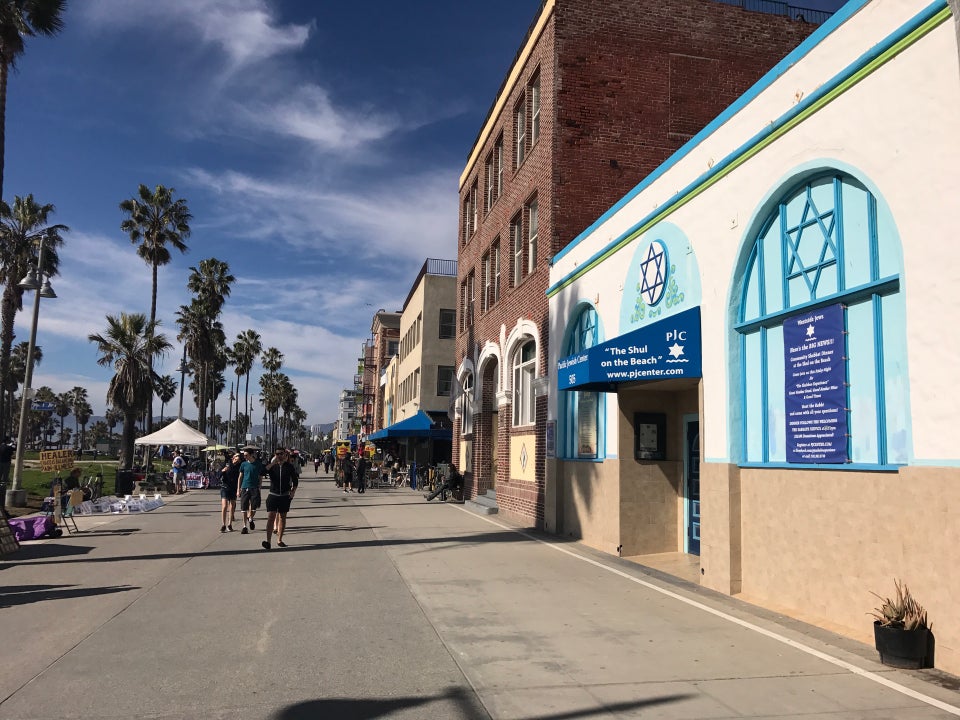
In early November, we convened Cohort IV of the Executive Leadership Program for their first seminar in Boston. Cohort IV fellows came from diverse communities and organizations across North America, including local Hillels, JCCs and Federations as well as umbrella organizations such as the JCC Association of North America, Jewish Federations of North America, and Hillel International. Over five days, fellows formed a new learning community as they explored the beliefs and practices of today’s Jews and the diversity of contemporary Jewish life in North America.
Each seminar includes an experiential project that enables fellows to exercise leadership skills and integrate key ideas from faculty sessions. This summer, the Jewish Federation of Greater Los Angeles released the 2021 Study of Jewish LA, which highlighted the significant growth in the community’s size and diversity since the last study was conducted in 1997. We collaborated with Associate Chief Program Officer Shira Rosenblatt, who oversaw the study, to develop an inquiry project focused on the growing diversity of the LA Jewish community. This opportunity was facilitated by Cohort II graduate Andrew Cushnir, who serves as the Federation’s Executive Vice President, and joined us virtually for elements of the project.
Fellows had the opportunity to engage with the data in the reports as a springboard for qualitative inquiry about diverse Jewish Angelinos. Together with Shira, we identified three community segments to focus on for the project: LGBTQ+ young adults, Persian young adults, and multifaith families with children. Mandel Fellows interviewed thirty community members who feel a sense of belonging to these groups, among other facets of their identities. With training from the lead investigator of the LA study Janet Aronson, fellows crafted questions to surface stories and experiences from interviewees that could shed light on the myriad ways they find community, engage in spiritual and cultural practices, and express their values.
The project also created an avenue for fellows to apply concepts from faculty-led sessions. Deborah Ancona’s teaching on sensemaking and relating and David Stolow’s session on inquiry and entrepreneurship framed the importance of learning from those outside your organization as well as individuals you serve to navigate uncertainty, update mental models, and lead change. Fellows also had the opportunity to contextualize Ted Sasson’s teaching on national demographic trends in the Jewish community, Dan Judson’s exploration of cycles of Jewish history, and Devora Steinmetz and Mara Benjamin’s sessions on new expressions of Jewish spirituality and meaning making.
Many fellows remarked that the opportunity to conduct interviews outside of their community offered a fresh perspective on the practice of qualitative inquiry. In the interview debrief sessions, fellows shared and probed memorable phrases, story moments, and aspirations that interviewees shared. They practiced sitting with new information and experiences before assigning meaning to what they heard. This is a critical step in the process of updating assumptions or mental models, which is a primary goal of sensemaking.
Conducting the interviews with peers from different communities also brought new knowledge and lenses with which to process the information they gathered. As one fellow shared, “…it was great to practice [sensemaking] in a community where I am not a stakeholder and with new thought partners to digest what we heard.” Fellows were also energized by group conversations about the purposes of community inquiry – what quantitative studies can and cannot provide and how to marry different forms of learning to continually refresh their understanding of the diverse communities they serve.
Eva Heinstein
